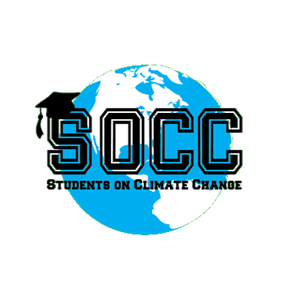HISTORY OF THE CLIMATE TALKS
United Nations Framework Convention on Climate Change (UNFCCC)
Conference of the Parties (COP)
Kyoto Protocol
- Sets an overall framework for intergovernmental efforts to tackle challenges posed by climate change
Conference of the Parties (COP)
- Highest decision making authority of the UNFCCC that meets annually to negotiate climate change policy
Kyoto Protocol
- Adopted in 1993 at COP3 in Kyoto, Japan to set binding emission targets for 37 industrialized nations and the European community to reduce greenhouse case (GHG) emissions
- The United States is the only industrialized nation that has not ratified the Kyoto Protocol
PROGRAM HISTORY
COP13
COP14
COP15
COP16
COP17
COP18
COP19
COP20
- The ACS participated as a UN-accredited NGO for the first time in Bali, Indonesia where the Bali Roadmap was adopted (2007).
- This roadmap was created to establish a "post-Kyoto" Protocol at COP15 in Copenhagen, Denmark (2009).
COP14
- The ACS was accredited but not formally represented in Poznan, Poland (2008).
COP15
- Copenhagen saw the largest gathering of heads-of-state ever outside of the UN in New york.
- The Copenhagen Accord was adopted to outline the future progression of the COP.
COP16
- In recognition of the 2011 International Year of Chemistry, the American Chemical Society's (ACS) COmmittee on Environmental Improvement sponsored two student delegates to represent the Society in Cancun, Mexico.
- Students Leah Block and ANthony Tomaine from York College of Pennsylvania blogged for C&E News under Editor-in-Chief Rudy Baum, using social networking technologies to reach out to their peers.
- A positive outcome was reached in Cancun as 194 parties excluding Bolivia adopted the Cancun Accord a "balanced package of decisions that set all governments more firmly on the path towards a low-emissions future and support enhanced action on climate change in the developing world."
COP17
- 5 student delegates were selected to attend the UN Climate Talks in Durban, South Africa.
- The conference in Durban established a second commitment period under the Kyoto Protocol for parties at the conference.
COP18
- Four student delegates attended the talks in oil-rich Qatar.
- The global youth population was a major influence, with numerous demonstrations aimed at policy makers to
encourage them to work together to quickly agree on policies that would legally bind countries
to mitigate their emissions.
COP19
- Six students attended the talks in Warsaw, Poland using social media outreach to expand their Facebook, Twitter and Instagram following.
- The conference outcomes were minimal, gearing up for negotiations at COP20 which would be used to craft and agree upon a new binding commitment at COP21 in Paris in 2015.
COP20
- Nine students attended the talks in Lima, Peru and focused on continuing work with Facebook, Twitter, Instagram, and blogging.
- Once again, the conference was centered on preparing a draft for COP21 in Paris in December 2015.

